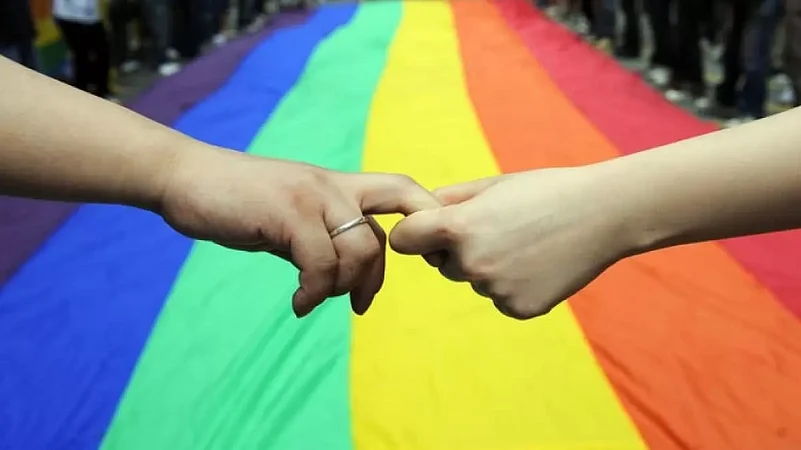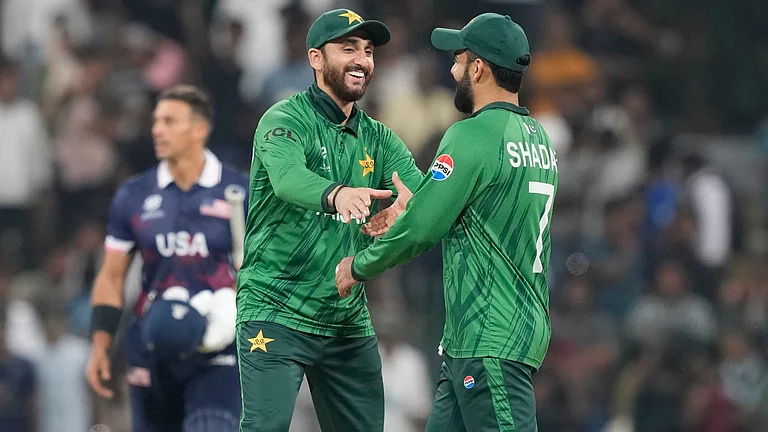The RSS-inspired weekly "Organiser" has come out against granting legal validity to same-sex marriage, an issue being heard by the Supreme Court, and argued that the Indic perspective should be central to any deliberation on marital topics.
"Equating same-sex relations to the institution of marriage is going to the other extreme. In the Bharatiya tradition and laws, marriage as an institution is beyond a contract or legal registration. While pursuing and deliberating on marital issues, this Indic perspective should be central," its editor Prafulla Ketkar has written in the magazine's latest issue.
He also cited a statement issued by a group of former judges, including Justice S N Dhingra (retired), in this context. "Former judges urged the conscious members of the society including those who are pursuing the issue of same-sex marriage in Supreme Court to refrain from doing so in the best interest of Bharatiya society and culture. They called it a cancerous problems that the West is facing and are sought to be imported into Bharat by vested interest groups through the misuse of judiciary," the editorial stated.
It noted that IPC Section 377, which had declared same-sex relations a crime based on "Victorian morality", is already nullified. Incidentally, several minority bodies have also spoken against granting legal validity to same-sex marriage, which many rights group have sought.
The editorial also welcomed the Supreme Court reversing its 2011 ruling reviving the doctrine of guilt-by-association as it upheld Section 10 (a)(i) of the Unlawful Activities (Prevention) Act. The apex court had last month held that mere membership of a banned organisation is an offence liable to be punished with imprisonment under provisions of the Unlawful Activities (Prevention) Act.
The top court said its three verdicts of 2011 pronounced by two-judge benches, which held that mere membership of a banned organisation will not incriminate a person unless he resorts to violence or incites people to violence and does an act intended to create disorder or disturbance of public peace by resorting to violence, "is not a good law".
The "Organiser" took note of Solicitor General Tushar Mehta's arguments that the Supreme Court bench, whose verdict has now been reversed, committed a serious error by "straightaway and directly following the US Supreme Court decisions and that too without adverting to the differences and the position of laws in India to arrive at the ruling".
"While interpreting our Constitutional laws, this very problem of Americanism has created confusion in many other cases such as the right to privacy, same-sex marriages and the sanctity of temple traditions," the editorial said.
"The Constitution of Bharat is meant for 'we, the people', as it is adopted and enacted by and for the people of Bharat. The American or European wisdom on legal jurisprudence cannot become the basis for interpreting our laws. Our Constitution makers also envisaged the fundamentals in the same way.
"As many judges advocate indigenising the legal system, rejecting this trend of importing American decisions to the Bharatiya condition is a welcome step forward. It should not be the end but a beginning in indigenising jurisprudence," it said.


























